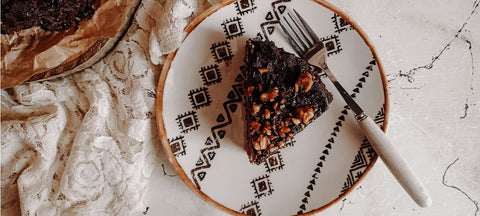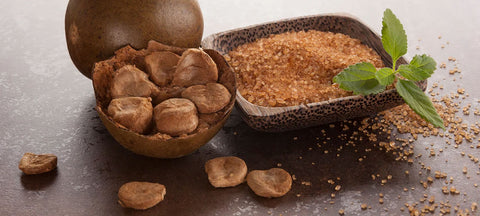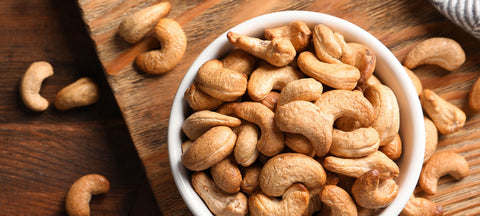Cakes have long been synonymous with celebration and indulgence, but there's a growing trend toward more mindful eating. Veganism, in particular, has gained considerable traction in recent years, with people embracing plant-based diets for various reasons, including ethical concerns, environmental sustainability, and personal health. Let's delve into the world of vegan cakes and uncover their nutritional values in comparison to traditional cakes. Prepare to be pleasantly surprised!
Embracing Plant Power
Vegan cakes are crafted entirely without the use of animal-based ingredients such as eggs, butter, and milk. Instead, plant-based alternatives take center stage, offering a plethora of nutritional benefits. Let's explore some of these key ingredients:
- Flaxseeds and Chia Seeds: These tiny powerhouses are excellent egg substitutes, adding moisture and binding properties to vegan cakes. Additionally, they are rich in omega-3 fatty acids, fiber, and antioxidants, benefiting heart health and digestion.
- Nut Milks: Almond, soy, oat, and coconut milk are popular dairy alternatives used in vegan cake recipes. They provide essential nutrients like calcium, vitamin D, and healthy fats, without the cholesterol and lactose present in traditional milk.
- Coconut Oil: A common substitute for butter, coconut oil contains medium-chain triglycerides (MCTs) that are easily metabolized by the body. MCTs are believed to support weight management, increase satiety, and provide a quick source of energy.
Wholesome Sweeteners
Vegan cakes often employ natural sweeteners that are less refined than their traditional counterparts, promoting a healthier dessert experience. These alternatives include:
- Maple Syrup: Derived from maple trees, this natural sweetener contains minerals like manganese and zinc, along with antioxidants. It imparts a rich, distinct flavor to vegan cakes while boasting a lower glycemic index than refined sugar.
- Agave Nectar: Extracted from the agave plant, this sweetener is sweeter than sugar, so less is required in recipes. Agave nectar has a lower glycemic index and may be a suitable option for individuals with diabetes or those seeking to manage their blood sugar levels.
-
Dates: These naturally sweet fruits are used to sweeten vegan cakes while providing essential fiber, potassium, and antioxidants. Dates offer a healthier alternative to refined sugar, enhancing the overall nutritional profile.
A Slice of Goodness
When it comes to nutritional values, vegan cakes have an impressive edge over traditional cakes. Here are a few notable benefits:
- Reduced Saturated Fat: By eliminating animal-based ingredients like butter and eggs, vegan cakes contain little to no saturated fat. This can contribute to a healthier heart and help maintain optimal cholesterol levels.
- Increased Fiber Content: Vegan cakes often incorporate whole grain flours and ingredients like fruits and nuts, boosting their fiber content. Dietary fiber supports digestion, aids in weight management, and promotes a feeling of fullness.
- Lower Cholesterol Levels: As vegan cakes omit animal products, they naturally lack cholesterol. This can be particularly advantageous for individuals aiming to reduce their cholesterol intake or manage their levels.
Vegan cakes offer a delightful twist on traditional indulgences while providing a range of nutritional benefits. By harnessing the power of plant-based ingredients and opting for natural sweeteners, these cakes deliver deliciousness without compromising on health. From reduced saturated fat and increased fiber content to the absence of cholesterol, vegan cakes offer a guilt-free treat that caters to various dietary preferences.
So, the next time you're craving a slice of cake, consider exploring the world of vegan cakes.



